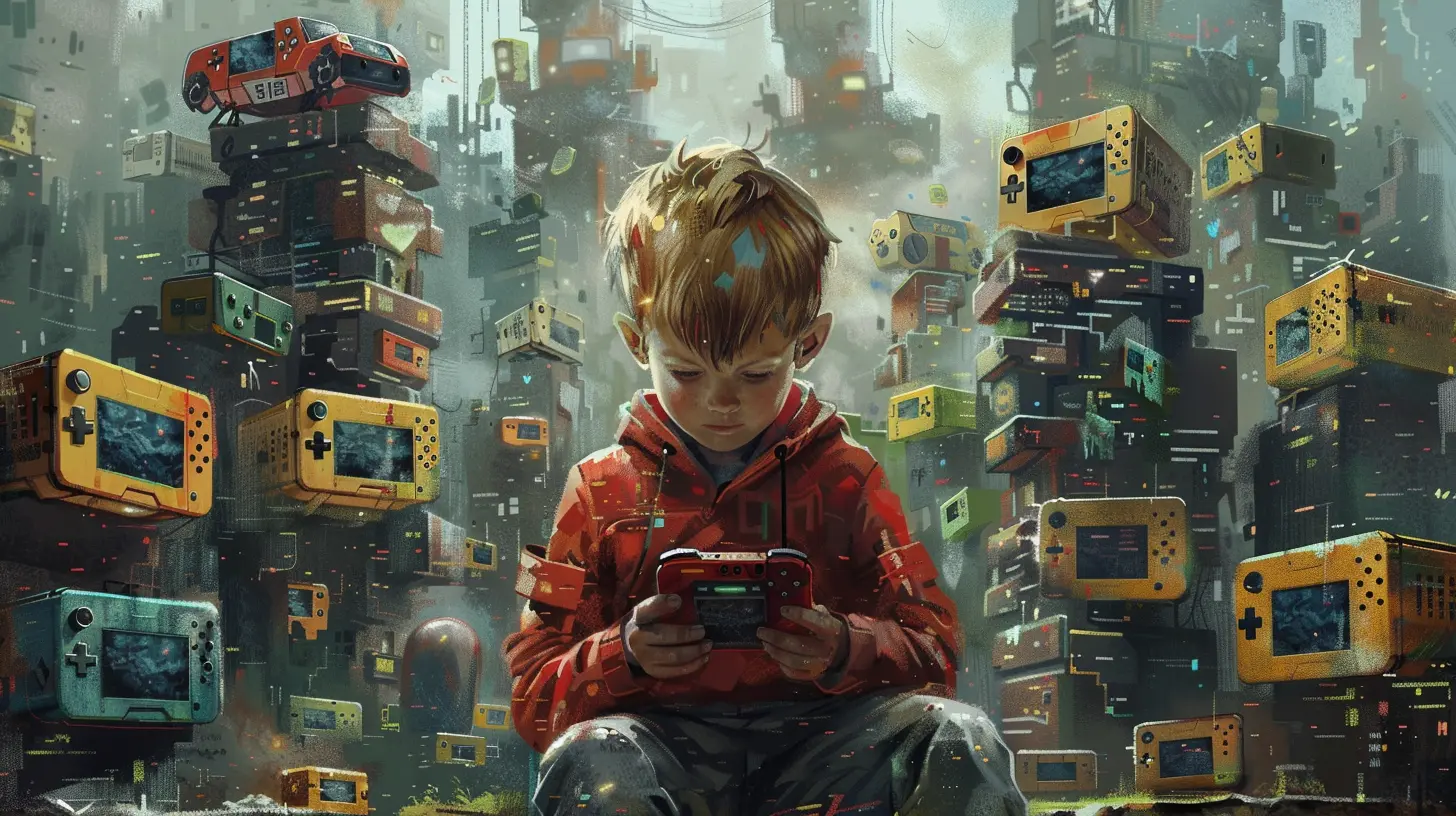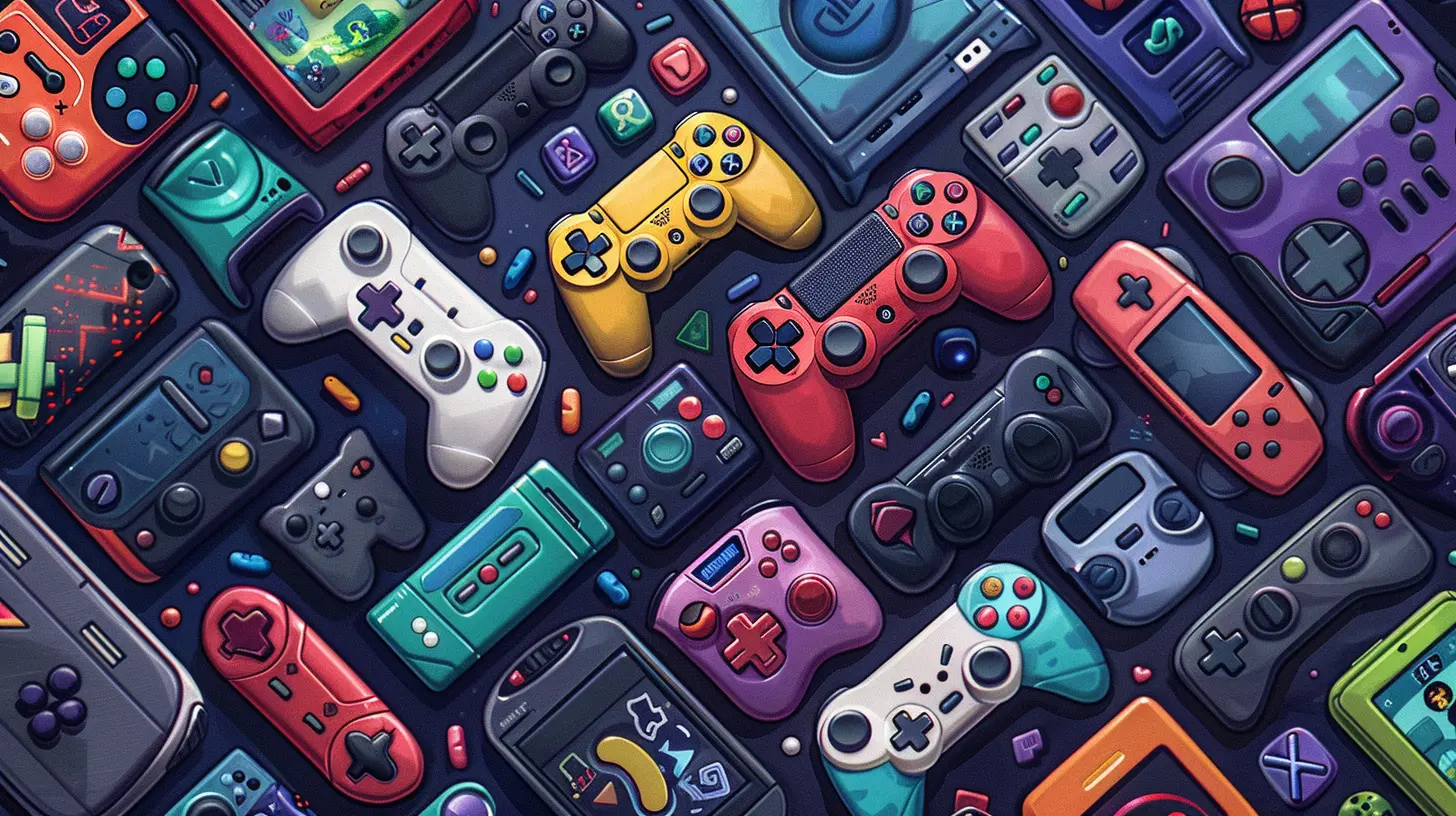The Psychology Behind Mobile Game Addiction
17 July 2025
Have you ever told yourself, "Just one more level," only to realize it’s 2 a.m. and your phone battery is clinging to life at 3%? If so, you're definitely not alone. Mobile games have a unique grip on us, pulling us into their pixelated world of endless rewards, flashy graphics, and feel-good noises that tickle our brains like a cat with a laser pointer.
But ever wonder why they’re so addictive?
Let’s take a deep dive—no lab coat required—into the fascinating psychology behind mobile game addiction. We'll uncover what keeps us swiping, tapping, and furiously upgrading characters long past bedtime.
The Dopamine Hit: Your Brain on Rewards
Okay, pop quiz: What do slot machines, chocolate, and mobile games have in common?Yep, you guessed it—dopamine.
Dopamine is that sneaky little chemical in your brain that screams "YES!" every time you experience something pleasurable. Mobile games are masters at hijacking your dopamine system. With every level you beat, badge you earn, or loot box you open, your brain gets a mini rush. It’s like getting a high-five from your neurons.
And here’s where it gets tricky—it’s not just the reward that releases dopamine. It’s the anticipation that keeps the chemical flowing. It’s that feeling of almost beating your high score or maybe getting that legendary item that keeps you glued to your screen.
Variable Rewards = Maximum Addiction
Ever heard of the Skinner Box? It’s a psychological experiment where pigeons press a lever to get food. If the food came out randomly, the pigeons pressed the lever way more.Mobile games work the same way. You don’t always get rewarded—sometimes it’s coins, sometimes it’s rare weapons, sometimes it’s…basically nothing. That randomness? It’s called a variable reward schedule, and it’s wickedly effective at keeping us hooked.
The Freemium Trap: It’s Free… Until It Isn’t
One of the most brilliant (and a bit evil) developments in mobile gaming is the freemium model.You download a game thinking, “Sweet, it’s free!” and before you know it, you’re buying gems, coins, and booster packs like you’re Scrooge McDuck on a spree.
But why does this work so well?
Well, first off, our brains are wired to avoid loss. Many games offer you a taste of what it feels like to win or dominate—then suddenly, you hit a wall. To keep that winning streak alive, you’re tempted to pay a little. “It’s just $2,” you tell yourself. Then $5. Then $10. Before you know it, you're budgeting around in-game currency rather than real money.
Also, once you've invested emotionally and financially, it's harder to walk away. Psychologists call this the sunk cost fallacy—the more you put in, the more you feel the need to keep going. Mobile games milk this like a cash cow on steroids.
Social Triggers: When Gaming Becomes Peer Pressure
Ever get a notification saying your friend "needs your help in Candy Crush"? That’s no accident, my friend.Mobile games thrive on social interaction. Whether it’s through leaderboards, clans, guild invites, or in-game messaging, these games trick our social brains into coming back. It plays on our need to belong, to compete, and to not let down the squad.
You might not even like the game that much anymore, but quitting feels like betraying your digital buddies—or worse, giving up your hard-earned spot on the leaderboard.
And let’s not forget FOMO (Fear Of Missing Out). Limited-time events or exclusive skins feed into our fear of being left out. So we play. And play. And play some more.
Progression Systems: Climbing the (Never-Ending) Ladder
Let’s be real. One thing mobile games do incredibly well is make you feel like you're getting somewhere—even when you’re not. It’s what we call artificial progression.You level up. You unlock new skins. You get stars, EXP, trophies, badges, and all sorts of shiny digital bling. But the kicker? There's no end. The more you climb, the more levels there are. It’s like being on a treadmill that throws confetti at you every few steps.
And it works because it taps into a simple truth: we love making progress. Even if it's just moving a bar from 10% to 50%, our brains light up like it’s New Year’s Eve.
This progression system keeps feeding tiny wins to us. And let's not forget the ultimate psychological powerhouse—the “near-miss” effect. Just missed unlocking that super rare loot? Guess what? You're gonna try again. Harder. And probably ten more times.
Easy Access: It’s Literally in Your Pocket
Let’s not overlook the obvious: your phone is always with you. Bored at the DMV? Tap. Waiting for your coffee? Tap. Avoiding small talk with that one coworker? TAP.Mobile games are built for immediate gratification. You don’t need a console or a TV or even an internet connection for some of them. You just need a thumb and a few seconds. That’s enough to get your fix.
This convenience makes it dangerously easy to "just play for a bit." It's the digital equivalent of "just one chip" from the bag—which, as we all know, ends in crumbs and regret.
The Power of Habit: Making It Part of Your Routine
Here’s a scary thought: mobile game addiction isn’t always about excitement—it’s often about routine.You wake up, check your messages, collect your daily bonus. Lunchtime? Might as well do a quick dungeon. Bedtime? Just finish that one last mission.
What starts as fun quickly becomes a habit loop: trigger ➜ action ➜ reward. Over time, you stop thinking about it. You don’t even consciously decide to open the app—it just happens.
And the game makes sure it happens. Daily rewards, login bonuses, energy refills—all nudge you to keep the streak alive. Miss a day, and you break your chain. No one wants to lose that 27-day login streak. That’s like forgetting an anniversary.
Gamification of Life: When Real Life Feels Less Rewarding
Let’s face it—real life is hard. Your boss doesn’t give you coins for finishing a report. You don’t level up for doing laundry. And there's definitely no epic loot for surviving a Monday.This is where mobile games swoop in like a shiny, dopamine-pumping superhero. It’s an escape into a world where everything has a point. Every tap, every move, every goal—instant feedback and reward. Compare that to the slow, often unrewarding grind of real life, and it’s no wonder many of us prefer the fantasy.
We’re not lazy. We’re just wired to respond to feedback, achievements, and meaning—and mobile games provide that in spades.
How to Spot and Deal With Mobile Game Addiction
Okay, so we’ve admitted games can be addictive. But what does addiction actually look like?Here are a few red flags:
- Skipping tasks or responsibilities to play
- Getting frustrated or anxious when you can't play
- Spending more money than you planned
- Constantly thinking about the game when you're not playing
If you find yourself nodding a little too hard, don’t panic.
Here are some tips:
1. Set Time Limits
Use app timers or screen time settings to keep yourself in check.2. Turn Off Notifications
Out of sight, out of mind. Trust me, that "daily bonus" can wait.3. Be Honest With Yourself
Ask: “Am I playing because I enjoy it—or because I feel like I have to?”4. Find Offline Joy
Go for a walk, grab coffee with a friend, pick up a book (yep, those still exist). Replace the game time with something meaningful.Final Thoughts: It's Not Just a Game, It’s Science
Look, it’s totally okay to love mobile games. They’re fun, they’re clever, and let’s be honest—some are downright masterpieces. But it’s important to understand the psychological levers they pull behind the scenes.Knowing how mobile games tap into our emotions, habits, and reward systems can help us enjoy them without falling into the trap of addiction. It’s like enjoying dessert—you can have your cake, just maybe not every five minutes.
So next time you're tempted to tap “play,” take a deep breath and ask, “Am I in control—or is the game playing me?
all images in this post were generated using AI tools
Category:
Mobile GamesAuthor:

Brianna Reyes
Discussion
rate this article
1 comments
Troy McKay
Play smart, balance fun, and enjoy responsibly!
August 7, 2025 at 2:27 PM

Brianna Reyes
Thank you for your thoughtful comment! Balancing enjoyment with mindfulness is key to a healthy gaming experience.


